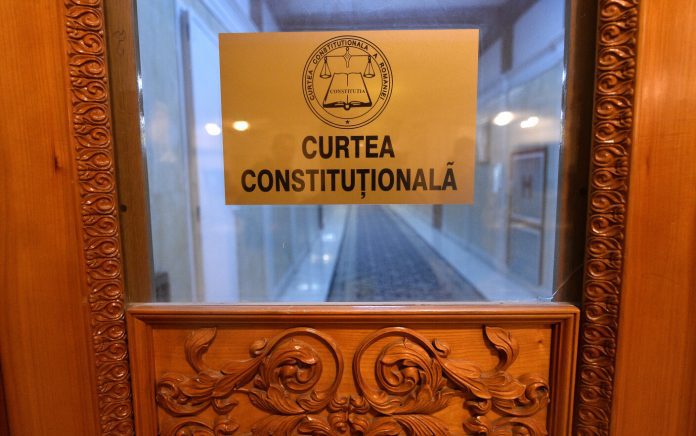The Constitutional Court of Romania admitted, on Tuesday, the notification submitted by Save Romania Union and Forta Dreptei in connection with the Law for the amendment and completion of Government Ordinance 27/2011 on road transport, establishing that the normative act is unconstitutional.
„Essentially, the Court held that, through the criticized normative act, any road passenger transport operator can request the performance of regular services at the inter-county level only regarding routes that are not already served by operators holding route licenses valid up to the date of June 30, 2023, respectively whose validity was extended until December 31, 2024, through the new transport authorizations provided for by the criticized law. This legislative solution excludes the possibility that other transport operators who did not have valid route licenses on June 30, 2023 to apply for national passenger transport authorizations for regular inter-county services for any inter-county route, under the conditions of the criticized law,” it is stated in a press release from the CCR sent to AGERPRES.
The Court found that the assignment of road passenger transport services, through regular inter-county services, regulated by the criticized law, restricts and even eliminates competition on this relevant market by establishing „discriminatory” conditions for operators who request access for the first time performing regular road transport services on a certain route on an inter-county route.
At the same time, the Court held that, since it is a regulated market, in which competition manifests itself only at the time of awarding the journeys, extending the duration of the inter-county transport program through non-competitive measures automatically leads to a lack of competition, blocking „unjustifiably” access to market of potential operators in the field.
„Furthermore, the lack of a criterion for the competitive assignment of route routes, such as the criterion of the travel rate applied per route/km, which has the highest weight when an exclusivity is granted on a route, distorts the competition on this specific market of road transport and leads to a sui-generis monopoly, in favor of the current operators who hold route licenses for the respective routes/routes, which is equivalent to violating the constitutional provisions regarding the market economy and the state’s obligation to ensure the protection of fair competition,” says the constitutional court.
The Court also noted that the current holders of route licenses valid until June 30, 2023 are favored over the new operators and by extension, initially until December 31, 2024 and thereafter, for a maximum duration of 3 years , of transport authorizations, and in the absence of the establishment of the most important evaluation criterion, that of the travel tariff, and of some technical and quality criteria of the means of transport that allow the increase of the quality of life and the provision of a decent standard of living (such as compliance with pollution or traffic safety rules, the level of comfort of the vehicles – air conditioning, the maximum age of the vehicle of nine years, ensuring the access of people with disabilities or the transport of people in isolated areas, without access to the railway infrastructure, etc.), the very legitimate purpose of the Competition Law no. 21/1996, consisting in the final protection of consumers, is affected, which is why these legislative solutions violate the constitutional principles of equal rights, fair competition and affect economic freedom and the standard of living, thus as provided for in the Constitution.
„The unjustified extension of the validity of the route licenses/transport authorizations at the inter-county level leads to the distortion of the competitive environment, by favoring the existing operators on the market and prohibiting the access of other operators who could have performed these services in economic conditions and of higher quality,” the quoted source mentions.
AGERPRES




